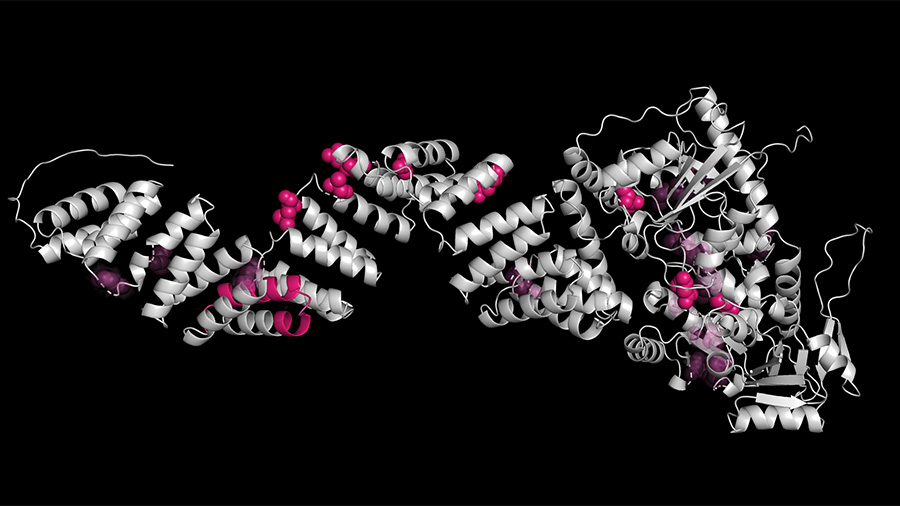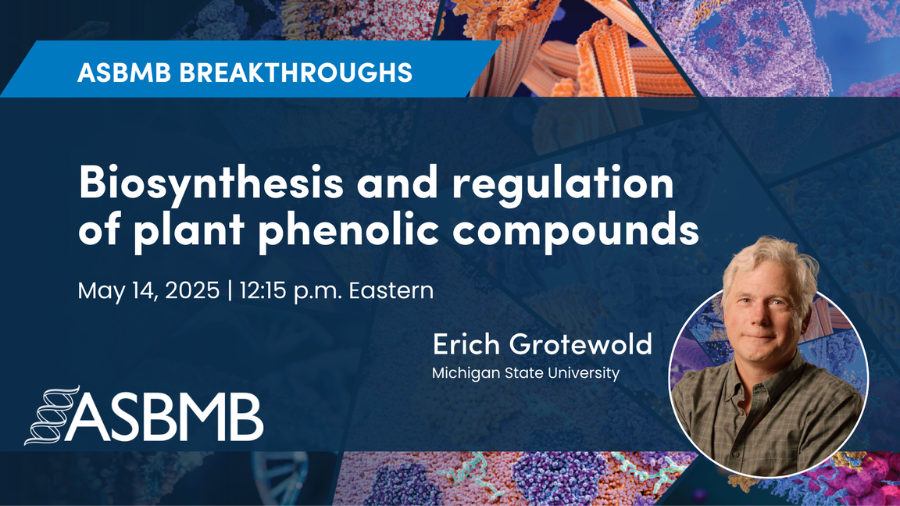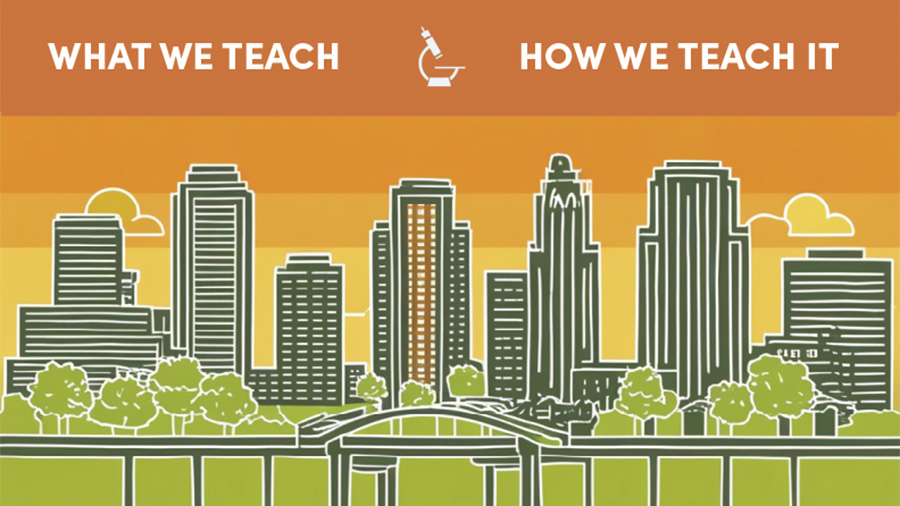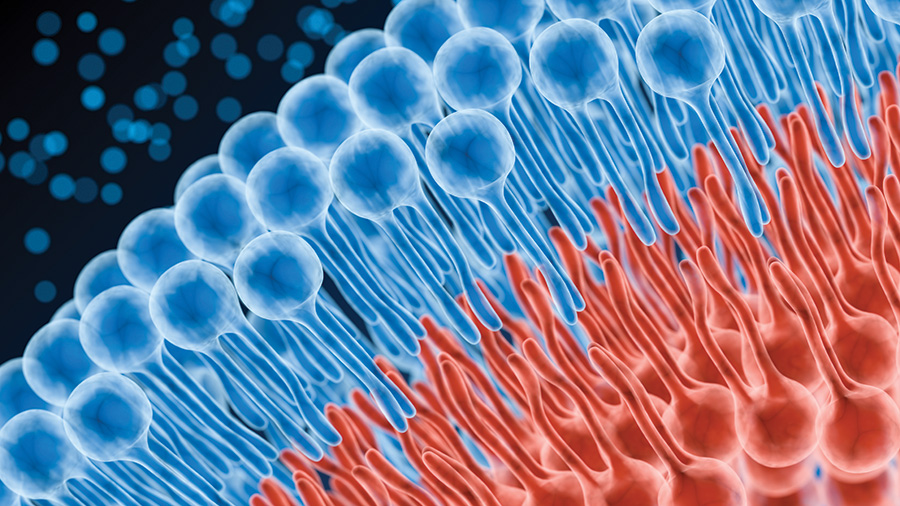Upcoming opportunities
Every week, we update this list with new meetings, awards, scholarships and events to help you advance your career. If you’d like us to feature something that you’re offering to the bioscience community, email us with the subject line “For opportunities list.” ASBMB members’ offerings take priority, and we do not promote products/services. Learn how to advertise in ASBMB Today.

May 12: Oral abstract and early registration deadline for ASBMB's O-GlcNAc meeting
"O-GlcNAcylation in health and disease," which will be held July 10–13 in Durham, N.C., will cover O-GlcNAc cycling enzymes and the O-GlcNAc modification in modulating protein function in basic biological processes as well as in disease states, including diabetes, cancer, cardiovascular disease and neurological diseases. Graduate students and postdocs will be selected for oral talks and discuss their work at poster sessions. Learn more and submit an abstract.
May 13: Zoom information session about the Colorado Science & Technology Policy Fellowship
Applications are now being accepted for the 2025/2026 Colorado Science and Technology Policy Fellows program. Through this a nonpartisan program, scientists, social scientists, engineers and technical experts support the Colorado State Legislature "for one- to two-year appointments to ensure the state’s competitiveness in science and technology." The information session will be at 12 p.m. MT on May 13. Applications are due at 6 p.m. MT on May 31. Learn more.

May 14: Oral abstract and early registration deadline for ASBMB's meeting on gene expression
"Evolution and core processes in gene expression," which will be held at Stowers Institute in Kansas City, Mo. from June 26–29, will showcase the most recent insights into the cis-regulatory code; how cis-regulatory information is read out by transcription factors, signaling pathways and other proteins; how cellular diversity is created during development; and how we can study this problem using cutting-edge genomics technology and computational methods. Learn more and submit an abstract by May 14.

May 14: ASBMB Breakthroughs webinar on biosynthesis and regulation of plant phenolic compounds
The ASBMB Breakthroughs webinar series offers a window into the cutting-edge biochemistry and molecular biology research driving discovery. Each month, this series highlights groundbreaking research, pioneering methodologies, and emerging trends redefining the boundaries of science.
The next webinar will be at 12:15 p.m. EDT on May 14. Erich Grotewold, a professor of plant biology at Michigan State University, will focus on the biosynthesis and regulation of flavonoids and phenylpropanoids (two phenolic compound classes) in maize and other plants. Grotewold will explore how natural variation in metabolite accumulation drives pathway discovery and discuss gene regulatory mechanisms linked to variations in metabolite levels. Finally, he will highlight unexpected biological activities of flavonoid pathway intermediates, offering new insights into their roles beyond the conventional functions of the resulting flavonoid pigments. Learn more and register.
Recordings of past webinars are available on-demand. Here are the presentations available to-date:
- Jan. 2025: "Lipidomics, shotgun lipidomics and functional lipidomics for Alzheimer’s research"
- Xianlin Han of the University of Texas Health Science Center presents his research on the use of shotgun lipidomics in biological and biomedical contexts. Watch the recording.
- Feb. 2025: "Modulating kinase signaling in disease: Translating basic science into clinical testing"
- Paul Shapiro of the University of Maryland presents his research into mitogen-activated protein kinases (MAPK), their regulation of substrates, and approaches to modulate MAPK functions in disease. Watch the recording.
- March 2025: "Evolution of metallo-β-lactamases: A journey from the test tube to the bacterial periplasm"
- Alejandro Vila of the University of Rosario presents his research on the evolutionary traits of clinical MBL variants under conditions that mimic their natural bacterial environment. Watch the recording.
May 14: GEN webinar on mouse models
At 11 a.m. Eastern on May 14, Genetic Engineering & Biotechnology News is hosting a free webinar titled "Translational mouse models to accelerate neurodegenerative disease therapeutics." Speaker Barry Bedell of Biospective "will discuss the multi-modality characterization of mouse models tailored for the preclinical evaluation of experimental therapeutic agents for neurodegenerative diseases including Alzheimer’s disease, tauopathies, Parkinson’s disease, and Amyotrophic Lateral Sclerosis (ALS)." Learn more.

May 20: Early registration and abstract submission deadline for ASBMB's meeting on transforming undergraduate education in the molecular life sciences
Join us at Macalester College in St. Paul, Minn., from July 24–27, for a small interactive, education-focused ASBMB meeting to re-examine existing practices and develop new engaging approaches to supporting student success in biochemistry and molecular biology. Reconnect with peers, meet new colleagues and increase your network of education-minded professionals while exploring the Twin Cities.
Talks and panel discussions will include sessions on the skills, competencies and key concepts we teach through biochemistry and molecular biology content, as well as on the pedagogical approaches that lead to student achievement. Each day will begin with a keynote talk on topics such as culturally-responsive pedagogy, an indigenized chemistry curriculum, alternative grading practices and fidelity of implementation. Keynotes will be followed by panel discussions and break-out sessions, with opportunities to learn about several education-focused NSF-funded projects, including CUREs, assessment, case-based learning and biomolecular visualization. Attendees will also have the opportunity to meet with program directors to learn about funding opportunities for education projects. Anyone interested in biochemistry and molecular biology education — from experienced practitioners to postdocs and graduate students considering careers involving teaching — is encouraged to attend. Register early and submit an abstract by May 20.

May 21: Deadline to submit an abstract for ASBMB's symposium on proteomics
This five-day symposium, held at the Broad Institute of MIT and Harvard in Cambridge, Mass. from Aug. 17–21, will be an international forum for discussion of the remarkable advances in cell and human protein biology revealed by ever-more-innovative and powerful proteomics technologies. The symposium will juxtapose sessions about methodological advances with sessions about the roles those advances play in solving problems and seizing opportunities to understand the composition, dynamics and function of cellular machinery in numerous biological contexts. It will also articulate urgent, unmet needs and unsolved problems that will drive the field in the future. In addition to talks by invited plenary and session speakers, short talks will be selected from submitted abstracts. Learn more and submit an abstract by May 21.

ASBMB Lipid Research Division Seminar Series presentation on membrane lipids
The ASBMB Lipid Research Division Seminar Series features free, monthly presentations from young researchers highlighting their recent work in the field of lipids. The next seminar, "Membrane lipids fine-tune cellular signaling," will be at 12 p.m. Eastern on May 21. Presentations include:
- "Role of PIPs and other membrane lipids in regulating the termination of signaling from G protein-coupled receptors using structural and functional studies" by Yasmin Aydin, Indiana University School of Medicine.
- "PIP2 is required for fast desensitization of GPCRs using BRET and fluorescence microscopy" by Gergo Gulyas, National Institutes of Health.
June 4: Application period opens for undergraduate students in summer research programs to give presentations at SACNAS' NDiSTEM Conference
Starting on June 4, undergraduate students in summer research programs are invited to apply to give research presentations at the 2025 SACNAS National Diversity in STEM Conference (NDiSTEM). Research presentations will help young researchers "refine presentation skills, receive one-on-one mentoring and feedback on research, and connect with a supportive community of peers, mentors, and role models." The summer application deadline is July 11. Learn more.
June 11: GEN virtual summit on the state of CRISPR and genome editing
At 11 a.m. on June 11, Genetic Engineering & Biotechnology News is hosting "The State of CRISPR and Genome Editing," a virtual summit featuring "an outstanding line-up of pioneers and practitioners in genome editing to provide a compelling and candid overview of the field." Learn more.
June 13: Deadline to apply for the Angelika Amon Young Scientist Award from the MIT Koch Institute for Integrative Cancer Research
Mid- to late-stage graduate students currently pursuing advanced degrees in the life sciences or biomedical research at non-U.S. institutions are eligible to apply for the Angelika Amon Young Scientist Award from the MIT Koch Institute for Integrative Cancer Research. This award, which was created in memory of Angelika Amon (1967-2020), a pioneering geneticist and cell biologist who is remembered as "a dedicated mentor, guide, advocate, and friend to many scientists." Applications are due at 11:59 p.m. EDT on June 13. Recipients will be invited to spend several days on MIT's campus in Cambridge, Massachusetts (Nov. 3–6, 2025). They will be provided with economy travel, hotel accommodations and a monetary award of approximately $1,000. Learn more.
June 15: Deadline to enter the Eppendorf & Science Prize for Neurobiology
Early career neurobiologists who hold an advanced degree (M.D., Ph.D., or an M.D./Ph.D.), received in the last 10 years, and who are not older than 35 years of age at the time of entry are invited to apply for the Eppendorf & Science Prize for Neurobiology. The prize, valued at $25,000, is awarded annually to "one young scientist for the most outstanding neurobiological research based on methods of molecular, cellular, systems, or organismic biology conducted during the past three years." Learn more.

June 20–21: Save the date for ASBMB's virtual meeting on nucleophilic proteases
There are more than 600 proteases in the human genome making it the second largest family of proteins in humans. These proteolytic enzymes are tightly regulated and function by performing post-translational protein modifications through hydrolysis of peptide bonds which results in activation or deactivation of biological pathways in an enormous array of physiological processes. Dysregulated proteolysis is also implicated in a large, diverse set of diseases including those relating to cardiovascular, immunological and cancer. Furthermore, the pathogenesis of many infectious diseases is mediated by proteases, either from the microbe, the host or both. These enzymes are classified by their catalytic mechanism into five types: serine, threonine, cysteine, aspartic and metalloproteases.
This year, we expand upon past meetings by highlighting the most significant recent studies not only on serine, but also on the other classes of nucleophilic threonine and cysteine proteases. The talks organized present aspects of protease biochemistry and biophysics such as structural biology, as well as drug discovery and inhibitor development. Cross-disciplinary topics include cancer, infectious disease (viruses, bacteria, other pathogens), inflammation and immunology, cardiovascular system, and others. Stay tuned for more information.
June 23: Deadline to apply for the American Board of Medical Specialties Visiting Scholars Program
The American Board of Medical Specialties Visiting Scholars Program "offers a pathway for early-career physicians and research professionals to develop new skills and capabilities, demonstrating their ability to create impact, which could become central to career progression and institutional reputation." Through this one-year program, scholars are awarded $15,000, and will work with self-selected mentors at their home institutions on a research project. Learn more.
June 26: Deadline to apply for Washington Research Foundation fellowships
The goal of the Washington Research Foundation's fellowship program is for the fellows' work to "benefit the public through enabling innovative discoveries that eventually lead to the creation of new products, services or practices." Up to 12 applications for three-year fellowships at nonprofit research institutions in Washington state will be accepted. Learn more.
Scientists whose federal grants were recently terminated are invited to apply for a Redwood Ink Academy Grant
Redwood Ink is accepting applications for a free 1-year enrollment in its Scientific Writing Simplified course and Redwood Ink Academy to support principal investigators of federally funded grants that were terminated. Learn more.
Do you have a great idea for a scientific event?
We are now accepting proposals for scientific events to be held in 2024 and 2025. You pick the topic, the sessions and the speakers, and we’ll do the rest.
That’s right! We’ll manage registration, market the event to tens of thousands of scientists, and handle all the logistics so that you can focus on the science.
The top areas of research interest among ASBMB members include the following, but we’ll consider all proposals:
- Protein structure and folding
- Molecular bases of disease
- Gene regulation
- Signal transduction
- Metabolism
What molecule, method or research question needs more attention? We’re here to help you realize your vision and deliver cutting-edge science to the BMB community.
Request a Cloud Lab account from the NIH
National Institutes of Health staff and affiliated researchers are invited to register for Cloud Lab accounts. The goal of this self-paced, interactive program is to remove "barriers to cloud adoption by providing no-cost, customized, and scientifically relevant training, making it easier for researchers to learn about and explore the cloud with confidence." Participants will have access to a free cloud account and $500 of credits, which are valid for up to 90 days. Learn more.
Year-round: HHMI Janelia Visiting Scientist Program
Graduate students, postdoctoral fellows and established senior investigators are all invited to participate in Janelia's Visiting Scientist Program. Janelia accepts visitor proposals on a continuous basis. Since 2007, more than 410 visiting scientists from 23 countries have participated in the program. Learn more.
Enjoy reading ASBMB Today?
Become a member to receive the print edition four times a year and the digital edition monthly.
Learn moreFeatured jobs
from the ASBMB career center
Get the latest from ASBMB Today
Enter your email address, and we’ll send you a weekly email with recent articles, interviews and more.
Latest in Careers
Careers highlights or most popular articles

Defining JNKs: Targets for drug discovery
Roger Davis will receive the Bert and Natalie Vallee Award in Biomedical Science at the ASBMB Annual Meeting, March 7–10, just outside of Washington, D.C.

Upcoming opportunities
No matter where you are in your career and what future path you aspire to, everyone needs leadership skills. Join ASBMB for practical strategies for building and practicing leadership skills.

Close out ASBMB 2026 with a bang
The closing reception of the 2026 ASBMB Annual Meeting will be held at the Torpedo Factory Art Center in Alexandra, Virginia.

Redefining lipid biology from droplets to ferroptosis
James Olzmann will receive the ASBMB Avanti Award in Lipids at the ASBMB Annual Meeting, March 7–10, just outside of Washington, D.C.

Creating change in biochemistry education
Pamela Mertz will receive the ASBMB William C. Rose Award for Exemplary Contributions to Education at the ASBMB Annual Meeting, March 7-10 in Washington, D.C.

Trainee mentorship as immortality
Suzanne Barbour will receive the ASBMB Sustained Leadership Award at the ASBMB Annual Meeting, March 7-10 in Washington, D.C.
